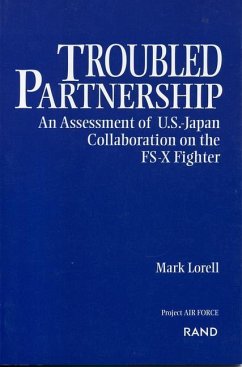The U.S. has generally tried to discourage its allies from developing their own major weapons systems, to promote equipment standardization with U.S. forces, and tie allied security policies more firmly to U.S. interests. Japan's FS-X fighter is perhaps the most prominent example of this policy. Japan had originally intended to design and build an indigenous fighter; the Pentagon urged Japan to buy an existing U.S. fighter. After difficult negotiations, the two sides eventually agreed to lightly modify the U.S. F-16 jointly to meet Japan's special needs. In the end, the FS-X program has failed to meet many of the original U.S. expectations, and Japan has reaped an unexpected reward--experience in developing a world-class fighter aircraft. This book summarizes and assesses the program.








